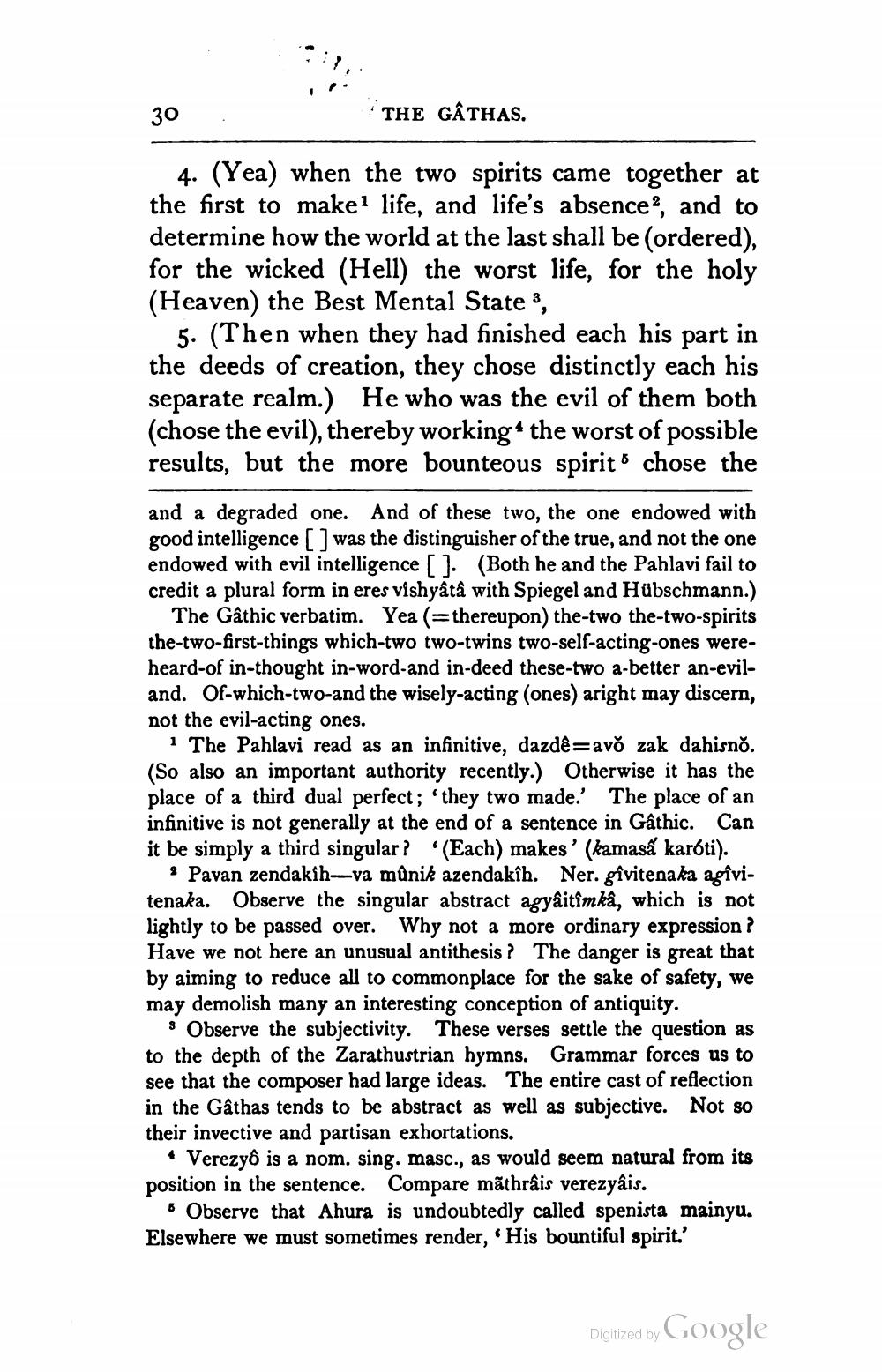________________
30
THE GÂTHAS.
4. (Yea) when the two spirits came together at the first to make life, and life's absence, and to determine how the world at the last shall be (ordered), for the wicked (Hell) the worst life, for the holy (Heaven) the Best Mental State 3,
5. (Then when they had finished each his part in the deeds of creation, they chose distinctly each his separate realm.) He who was the evil of them both (chose the evil), thereby working the worst of possible results, but the more bounteous spirito chose the
and a degraded one. And of these two, the one endowed with good intelligence [] was the distinguisher of the true, and not the one endowed with evil intelligence []. (Both he and the Pahlavi fail to credit a plural form in eres vishyâtâ with Spiegel and Hübschmann.)
The Gâthic verbatim. Yea (=thereupon) the-two the-two-spirits the-two-first-things which-two two-twins two-self-acting-ones wereheard-of in-thought in-word-and in-deed these-two a-better an-eviland. Of-which-two-and the wisely-acting (ones) aright may discern, not the evil-acting ones.
1 The Pahlavi read as an infinitive, dazdê=avo zak dahisno. (So also an important authority recently.) Otherwise it has the place of a third dual perfect; they two made. The place of an infinitive is not generally at the end of a sentence in Gâthic. Can it be simply a third singular? (Each) makes' (kamas karóti).
9 Pavan zendakih-va můnik azendakîh. Ner. givitenaka agivitenaka. Observe the singular abstract agyâitîmka, which is not lightly to be passed over. Why not a more ordinary expression ? Have we not here an unusual antithesis ? The danger is great that by aiming to reduce all to commonplace for the sake of safety, we may demolish many an interesting conception of antiquity.
Observe the subjectivity. These verses settle the question as to the depth of the Zarathustrian hymns. Grammar forces us to see that the composer had large ideas. The entire cast of reflection in the Gâthas tends to be abstract as well as subjective. Not so their invective and partisan exhortations.
• Verezyô is a nom. sing. masc., as would seem natural from its position in the sentence. Compare mãthrâis verezyâis.
6 Observe that Ahura is undoubtedly called spenista mainyu. Elsewhere we must sometimes render, His bountiful spirit.'
Digitized by Google
Digitized by




